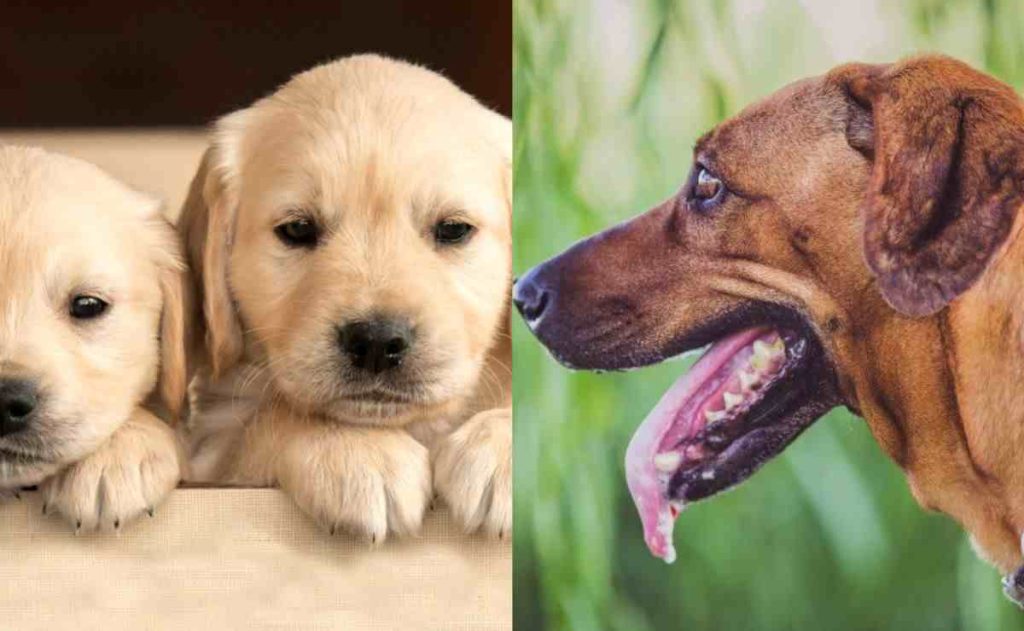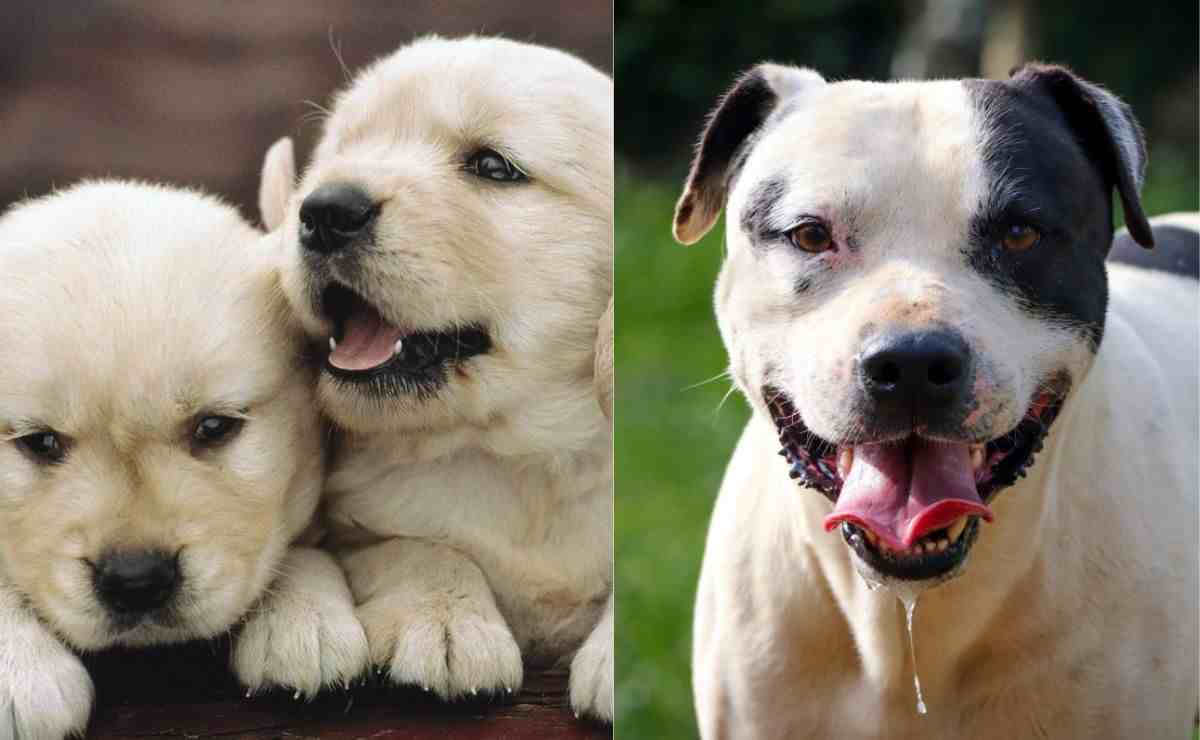As a dog owner, you may have noticed that your furry friend starts drooling excessively around puppies. You might wonder why this happens and if it’s normal behavior. Don’t worry; you’re not alone in your confusion.
Drooling is a common behavior among dogs, but excessive drooling can indicate different things depending on the situation and surroundings. When it comes to puppies, there are several reasons why your dog may start salivating more than usual. In this article, we will explore the possible explanations for why some dogs drool around puppies, so keep reading to learn more!
Why Does My Dog Drool Around Puppies?

Dogs are known to drool, but it can be particularly noticeable when they are around other puppies. Dog has some natural behaviors like growling, barking etc. Drooling behavior is also perfectly normal for dogs, and there are several reasons why it occurs. Understanding the causes of this behavior can help you better understand your dog’s needs and desires.
One reason why dogs drool around puppies is that they may be feeling a sense of anticipation or excitement. Dogs are social animals by nature, and being in the presence of other dogs can often elicit feelings of joy and happiness. Additionally, if your dog is particularly fond of puppies, they may become even more excited at their presence.
Another reason why dogs might drool around puppies has to do with scent. Dogs have an incredible sense of smell, which means they can pick up on even the slightest variations in scent.
Do Dogs Drool from Stress?
Many dog owners have witnessed their furry friends drooling, especially in certain situations.
One of the most common questions that pet parents ask is whether dogs drool from stress. To answer this question, we need to understand how dogs communicate and react to stress.
Drooling is a normal physiological response for dogs, but it can also be a sign of anxiety or fear. When a dog feels stressed or threatened, the body releases adrenaline and cortisol hormones that activate the salivary glands. This causes excessive drooling as an automatic reaction to prepare for potential danger.
However, not all dogs respond to stress by drooling. Some may pant heavily or exhibit other physical symptoms such as shaking or pacing. It’s important to observe your dog’s behavior carefully and identify any patterns that indicate stress levels are high.
What Causes A Dog Stress?
Dogs are sensitive creatures and can experience stress just like humans. There are several factors that can cause stress in dogs, including changes in their environment, medical conditions, and socialization issues. As a dog owner, it’s important to understand what causes your furry friend to feel stressed so you can take the necessary steps to manage their anxiety.
One of the most common causes of stress in dogs is a change in their environment. Moving to a new home or even rearranging furniture can be unsettling for some dogs. Additionally, loud noises such as thunderstorms or fireworks can also trigger feelings of anxiety and fear. It’s important to provide your dog with a safe space where they can retreat during these stressful situations.
Medical conditions can also contribute to canine stress levels. Painful ailments such as arthritis or dental problems may cause discomfort and lead to increased anxiety levels for your furry friend.
How to Reduce Stress in Dogs?
Stress in dogs is a common issue that affects the overall well-being and happiness of our furry friends. It can be caused by various factors like loud noises, separation anxiety, changes in routine, illness or injury, and socialization issues.
While some stress is normal for dogs to experience, excessive stress can lead to serious health problems over time. Here, we’ll discuss some tips on how to reduce stress in dogs and ensure they live happy and healthy lives.
The first step to reducing your dog’s stress levels is to identify the source of their anxiety. This could involve observing their behavior closely or consulting with your veterinarian if necessary. Once you’ve identified the cause of your dog’s stress, you can work towards removing it from their environment or finding ways to manage it effectively.
How to Stop a Dog from Drooling Around Puppies?
Drooling is a common behavior of dogs, but sometimes it can become excessive and problematic. If your dog is drooling excessively around puppies, it could be due to various reasons such as anxiety, excitement or hunger. While some drooling may be normal in these situations, excessive drooling can lead to other problems like dehydration and discomfort for the puppy.
If you’re struggling with this issue, here are some tips on how to stop your dog from drooling around puppies.
The best ways to stop your dog from drooling around puppies is to identify the causes of their behavior.
You must find out, is your dog feeling anxious or excited? Are they hungry or thirsty? By understanding what’s causing the excessive saliva production, you can take steps to address the root cause of the problem.
For example, if your dog is overly excited when meeting new puppies, try introducing them slowly and calmly.
Conclusion
By reading the above content, you already aware that dogs drool around puppies for several reasons, including excitement, nervousness, and submission. It’s important to remember that drooling is a natural behavior for dogs and not necessarily a sign of aggression or danger.
If you notice your dog drooling excessively around puppies, try to observe their body language and behavior to determine the cause. With proper socialization and training, your dog can learn to interact with puppies in a calm and positive manner. Always supervise any interactions between dogs and puppies to ensure their safety.
Remember that patience and consistency are key when it comes to helping your dog feel comfortable around the puppies and other associated pet animals.
